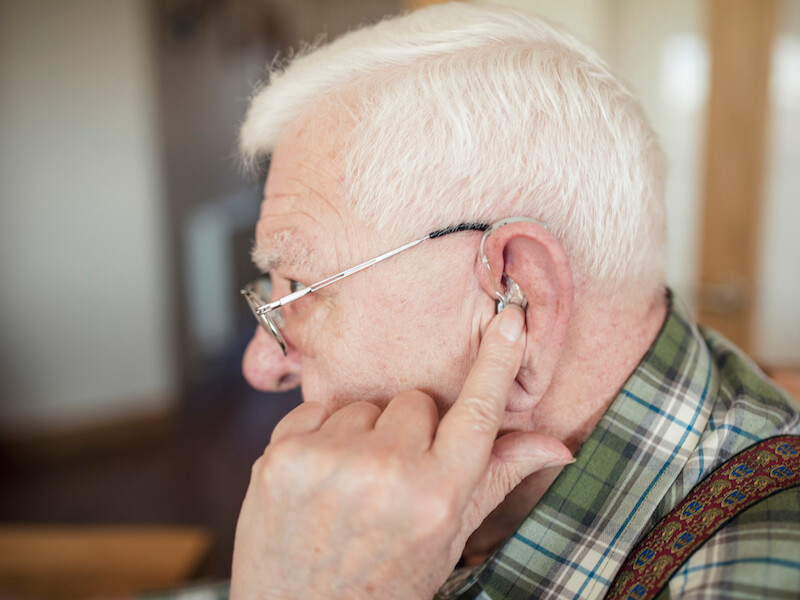Do you feel like your hearing aid batteries are not keeping a charge as long as they should? Here are a few surprising reasons that might occur.How long should hearing aid batteries keep a charge? Anywhere from 3 to 7 days is standard. That range is fairly wide. So wide, in fact, that it’s unpredictable and leaves you in a serious predicament. You could be on day 4 at the grocery store when out of the blue, things go quiet and you’re unable to hear the cashier. Or it’s day 5 and you’re enjoying a call with friends when suddenly you find yourself feeling really alone because you can no longer hear the conversation. Now, you’re watching TV. All of a sudden you can’t hear the news. Wait, it’s only day 2. Yes, occasionally they even drain before that 3-day mark. It’s not just annoying. You’re missing out on life because you’re not sure how much juice you have left in your hearing aids. If your hearing aid batteries are dying too rapidly, there are several likely causes.
Moisture Can Drain a Battery
There aren’t very many species that produce moisture through their skin but humans do. It’s a cooling mechanism. It’s the body’s way of ridding the blood of sodium and toxins. Moreover, you might live in a rainy or humid climate where things get even wetter. This additional moisture can clog the air vent in your device, making it less effective. It can even deplete the battery directly by interacting with the chemicals that produce electricity. Here are a few measures you can take to prevent moisture-caused battery drain:
- Open the battery door when you store the hearing aids
- if your storing them for several days or more, remove the batteries
- Get a dehumidifier for your hearing aids
- Don’t keep your hearing aids in the bathroom, kitchen or other moist conditions
Advanced Hearing Aid Features Can Deplete Batteries
You get a much better hearing aid now than you did even a decade ago. But these extra features can cause batteries to drain faster if you’re not paying attention. Don’t avoid using your favorite features. But just know that if you stream music for hours from your smartphone to your hearing aids, you’ll need to replace the battery sooner. Bluetooth, multichannel, tinnitus relief, noise canceling — all of these additional functions can drain your battery.
Altitude Changes Can Affect Batteries Too
Your batteries can be drained if you go from low to high altitudes particularly if they are already low on juice. Take some extra batteries if you are going on a plane or high up into the mountains.
Maybe The Batteries Aren’t Really Low
Some models will give you an alert when the battery starts to get too low. These warnings are, under normal circumstances, a “heads up”. They’re not actually saying the battery is depleted. Moreover, sometimes an environmental change in humidity or altitude temporarily causes the charge to drop and the low battery alert gets activated. In order to end the alarm, remove the batteries, and then put them back in. You might be able to get a few more hours or possibly even days out of that battery.
Improper Handling of Batteries
Wait until you’re about to use your hearing aid to pull the tab from the battery. Make sure you wash your hands before handling your hearing aids or batteries to protect against getting dirt or hand oil on them. Hearing aid batteries should not be frozen. This technique might extend the life of some kinds of battery but it doesn’t work with hearing aid batteries. Basic handling errors such as these can make hearing aid batteries drain more quickly.
Buying a Year’s Supply of Batteries Isn’t a Good Plan
Buying in bulk is typically a smart money move if you can afford to do it. But as you come to the end of the pack, the last few batteries most likely won’t last as long. Try to stay with a 6-month supply or less unless you’re okay with the waste.
Purchasing Hearing Aid Batteries Online
Buying online can be a good thing. You can get some great deals. But some batteries that can be found online are being sold by less honest people and are near their expiration date. Or worse, it has already passed. So buyer beware.
Both alkaline (AA, AAA, etc.) and zinc hearing aid batteries have a date they will expire. You shouldn’t buy milk without looking at the expiration date. You should use the same amount of care with batteries. If you’re going to get the most from your pack, be certain the date is well in the future. If the website doesn’t specify an expiration date, message the vendor, or purchase batteries directly from us. Only buy batteries from reliable sources.
Now You Can Get Rechargeable Hearing Aids
Hearing aids may drain too quickly for numerous reasons. But you can get more power out of your batteries by taking some precautions. You might also consider rechargeable hearing aids if you’re going to buy a new set. You dock them on a charger each night for a full day of hearing the next day. The rechargeable batteries only have to be changed every few years.
[blogcta]

